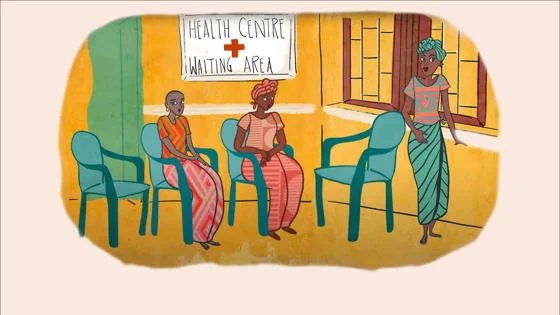Changing the narratives on Sub-Saharan Africa’s failure to develop

Contents
Despite rapid growth in many African economies over the past two decades, Sub-Saharan Africa remains the world’s poorest region. Even before the COVID-19 pandemic, more than a third of the population of Sub-Saharan Africa were living in extreme poverty, defined as living on less than $1.90 a day. Africans represent more than half of the world’s "extreme poor" population.
Why these 46 nations of more than a billion people are vastly more impoverished than the rest of the developing world remains a key question for researchers and policymakers, and one given added urgency by the impact of the pandemic.
For several decades, economists and historians have focused on understanding the sources of slow economic growth in Africa after the end of colonial rule since 1960. One reason for this focus was a lack of annual data on Africa’s economic performance before then. This lack of data also meant that Africa was left out of academic debates about patterns of long-run growth.
A lot of early African economic history was based on the assumption that there was little growth or dynamism in African economies until relatively recently. We show that wasn’t the case.
Africa was not always poorer than other regions
New research by Stephen Broadberry of Nuffield College, Oxford and Leigh Gardner of LSE, has produced the first annual estimates of GDP per capita for eight African countries from 1885 to 2008. These data challenge several prominent narratives about Africa’s economic performance: Africa was not always poorer than other regions, and had in fact experienced significant periods of growth dating back at least to the 19th century. However, overall gains in per capita income have been limited due to repeated periods of economic shrinking which have occurred over that period.
Dr Gardner, Associate Professor in LSE’s Department of Economic History, explains: "Because we didn’t have any annual data on per capita income before 1950, a lot of early African economic history was based on the assumption that there was little growth or dynamism in African economies until relatively recently. We show that wasn’t the case."
Using archival records on trade and government finance, Professor Broadberry and Dr Gardner were able to show that among eight former British colonies (South Africa, Zimbabwe, Ghana, Nigeria, Kenya, Uganda, Zambia and Malawi) most had levels of per capita income well above subsistence even in the late 19th century.
Many countries experienced economic stagnation during this period, but in Africa the effects were compounded by debt crises and political instability.
All experienced both periods of rapid growth and periods of shrinking. Dr Gardner says: "While there have been other estimates of historical GDP per capita, they often used benchmark years rather than annual data. By producing the first annual estimates, we were able to document these patterns of growing and shrinking over more than a century. This limited the increase in per capita incomes over the long run."
These swings were driven largely by fluctuating demand for exports but also by political instability such as the South African War (1899-1902), the Mau Mau rebellion of the 1950s, and the Nigerian Civil War (1967-1970), which all coincided with sharp declines.
Even so, the researchers found that African per capita incomes remained at least on a par with, and in some cases even above, the large Asian economies, India and China, until the 1980s. It is only since the 1980s that Sub-Saharan Africa has emerged as the world’s poorest region.
Dr Gardner explains: "There was a long period of shrinking beginning during the 1970s and extending through the 1980s." The original cause was the global oil crises of the 1970s, which began in 1973 when members of the Organisation of Petroleum Exporting Countries (OPEC) declared an oil embargo which increased prices of oil worldwide. "Many countries experienced economic stagnation during this period, but in Africa the effects were compounded by debt crises and political instability, which led to a longer period of shrinking. Meanwhile India and China continued to grow, which is what opened up the gap we see today."
Putting Africa's 1980s crisis in context and approaching African growth in a different way
Having annual data over a longer period allows us to put the 1980s crisis in context, and think in a different way about what has shaped African growth. Dr Gardner said: "With our data, you can see that one of the things that has limited overall growth in Africa per capita income is the frequency of these periods of shrinking and the severity."
The past two decades have seen a period of growth for most African countries and the new data show that this is not unprecedented in African history. The researchers point out that reducing sources of risk should perhaps be a greater focus for policymakers and aid agencies than increasing the rate of growth during boom periods. "Most people think only about growth, but our work suggests that understanding shrinking is just as important."
The data also bring Africa into global debates about long-run growth. Dr Gardner said: "The new GDP data allow us to fit Africa into the global story in a way that it hadn’t been before, ensuring Africa is represented in the story about the history of the global economy before 1950."
Dr Leigh Gardner was speaking to Joanna Bale, Acting Head of Media Relations at LSE.
Download a PDF version of this article




